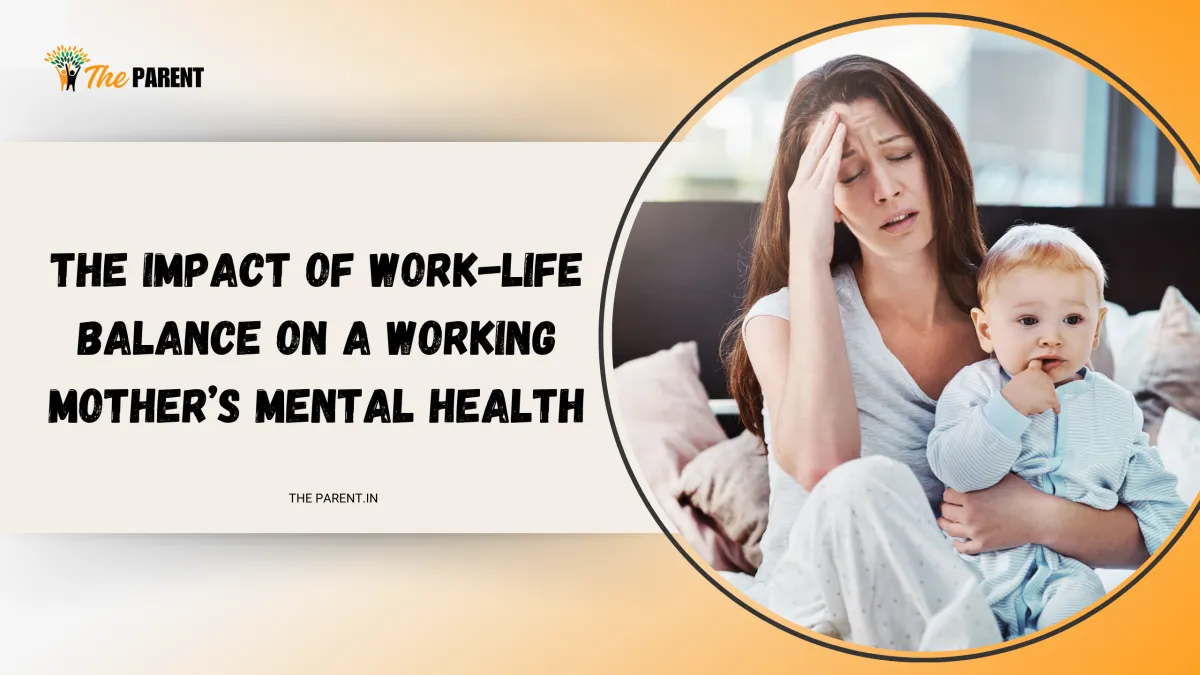
The Impact of Work-Life Balance of Working Mother’s Mental Health
Work-life balance has considerable importance in modern life but is even more meaningful to working mothers. They are responsible for work, family, and self-care, which can be overwhelming. This blog looks at “The Work-Life Balance on a Working Mother’s Mental Health” and examines the struggles, effects, and ways to balance.
What does work-life balance mean?
Work-life balance means managing the demands of work and the demands of one’s personal life. For working mothers, this means advocating and negotiating time/space for work, their children, household responsibilities, and self-care. In order to maintain mental health, work-life balance is pivotal and important.
The Impact of Work-Life Balance on a Working Mother’s Mental Health

1. Stress and Burnout
Having too much on your plate at work and home can exacerbate stress levels and result in burnout. Burnout is differentiated by feelings of fatigue, loss of productivity, and emotional depletion.
2. Guilt and Anxiety
Many working mothers experience feelings of guilt in relation to their job or their family; this "I feel bad about missing work vs I feel bad about missing family time" can produce anxiety and erode confidence.
3. Mental Health Impact
Chronic stress and guilt can lead to depression and anxiety disorders.
Disrupted balance can create feelings of isolation and insufficiency.
4. Benefits of Balance
When a mother is able to accomplish work-life balance, she will:
Feel that she is in charge of her life.
Experience enhanced happiness and mental clarity.
Experience best practices in her work and/or personal relationships.
Common Challenges for Working Mothers
1. Limited Time
Time limitations often require mothers to make choices about work or family, with little time for self-care.
2. Work Responsibilities
Heavy workloads and inflexible schedules can make it hard to create working time for the family.
3. Societal Expectations
Socially imposed pressures often require mothers to be great at work and great mothers, creating additional mental burden.
4. Lack of Support
Without enough support from partners, employers or childcare providers, it becomes easy to lose sight of how to manage both responsibilities.

Practical Tips to Improve Work-Life Balance
1. Set Realistic Expectations
Avoid striving for perfection in all aspects of life.
Focus on what truly matters and let go of unnecessary tasks.
2. Create a Schedule
Use calendars to allocate time for work, family, and self-care.
Include breaks to recharge and prevent burnout.
3. Seek Support
Share responsibilities with your partner or other family members.
Consider hiring help for household tasks if feasible.
4. Communicate with Employers
Discuss flexible working hours or remote work options.
Prioritize tasks at work to reduce after-hours obligations.
5. Practice Self-Care
Dedicate time to activities that promote relaxation, like yoga or reading.
Maintain a healthy diet and regular exercise to boost mental health.
6. Leverage Technology
Use apps to organize work tasks and family schedules.
Automate repetitive household chores, like grocery shopping.
7. Learn to Say No
Politely decline additional responsibilities that could disrupt balance.
Focus on commitments that align with your priorities.

Building a Supportive Environment
1. At Home
Foster open communication with your family about your needs.
Encourage children to contribute to household chores, teaching them responsibility.
2. At Work
Advocate for workplace policies that support parental leave and flexible schedules.
Build a network of colleagues who understand and respect your dual roles.
3. Community Resources
Join local or online support groups for working mothers.
Utilize childcare services or co-working spaces with childcare facilities.
The Benefits of Work-Life Balance
When working mothers achieve balance:
Their mental health improves, reducing stress and anxiety.
Relationships with family members become more meaningful.
Productivity and job satisfaction increase, benefiting both personal and professional life.
The importance of work-life balance for working mothers cannot be overstated. It directly affects their mental health, happiness, and ability to nurture both their family and career. By understanding “The Impact of Work-Life Balance on a Working Mother’s Mental Health” and implementing the strategies outlined here, mothers can create a life that fosters well-being and fulfillment.
Achieving balance isn’t always easy, but with the right tools and support, it is possible to thrive in every aspect of life.


